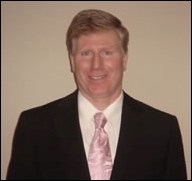Many people push most serious planning and financial matters to the side as the weather heats up as we spend more time enjoying the great outdoors. But it’s just for this reason that summer is often ideal to review and plan for items that you might have neglected at other times of the year. So here are a few things you can review as part of your summer financial check-up.
Often when you see your financial advisor at other times of the year, you are doing your taxes, contributing to RRSPs, TFSAs, and RESPs, deciding on RRSP maturity options, other planning issues can be neglected due to the more pressing decisions to be made at the time. So here’s a checklist of items you can discuss with your advisor now:
Wills and powers of attorney (POA)
* Is your will up to date (less than 10 years old)?
* Have you remarried, been widowed, or had more children since your last will was reviewed?
* Has your net worth increased substantially since your last will was done?
* Have you reached an age (about 55-60) where health concerns are more common and a POA is useful to have on file?
Many lawyers and notaries charge about $400 to do a will packages. This usually involves having you fill out much of the information yourself and then bringing the documents to the lawyer’s office, which reduces the cost by about half. However, wills can cost much more, depending on how many visits you have with the lawyer and how complicated your estate may be.
Account consolidation and fee reduction
Do you have small amounts of money or investments at three or more institutions? Often you can make your life easier and save money if you consolidate into a high net worth (HNW) option with a single advisor, which can be available for accounts with assets of $100,000 or more.
The HNW option will also have the side benefit of reducing papaerwork, because you’ll be getting fewer statements. and it will make monitoring simpler too. Better to be a “big fish with one smaller company than a “small fish” in a giant company with many employees who probably won’t even know your name, let alone your financial goals and plans.
Investing for tax reasons
* Are your dollars going in the right places to save you income tax?RRSPs can save you a lot of money in income tax if you are in a high tax bracket. Do you invest in TFSAs rather than non-registered (open) investments, which are tax preferred? Do you invest your TFSA so you can make money (which is the purpose for saving capital gains) or is it just invested in GICs and money market funds, which earn almost nothing? You may wish to have some guaranteed money (GICs and money market/savings account) for short-term trips or for an emergency fund, but investing too much in that area usually isn’t good long-term financial planning.
* Are you taking advantage of “free money”such as Registered Education Savings Plans (RESPs) and Registered Disability Savings Plan (RDSP) offered by the government?
For instance, post-secondary education isn’t going to get any cheaper, and leaving your child with a $30,000-plus student loan when they are just starting out in life can be an albatross around their neck, holding them back and reducing their standard of living for many years. If funds are tight, start an RESP with as little as $100 a month and with the Canada Education Savings Grant that is part of the plan, you will be surprised at how quickly it grows. As your income increases, so can your contributions to the RESP.
Enjoy the sun but try to make some time in between vacations or weekend getaways to meet with your advisor and review some of these important items that might be forgotten at other times of the year.
Courtesy Fundata Canada Inc. © 2015. Bruce Loeppky is a financial advisor based in Surrey, B.C. This article is not intended as personalized advice.



